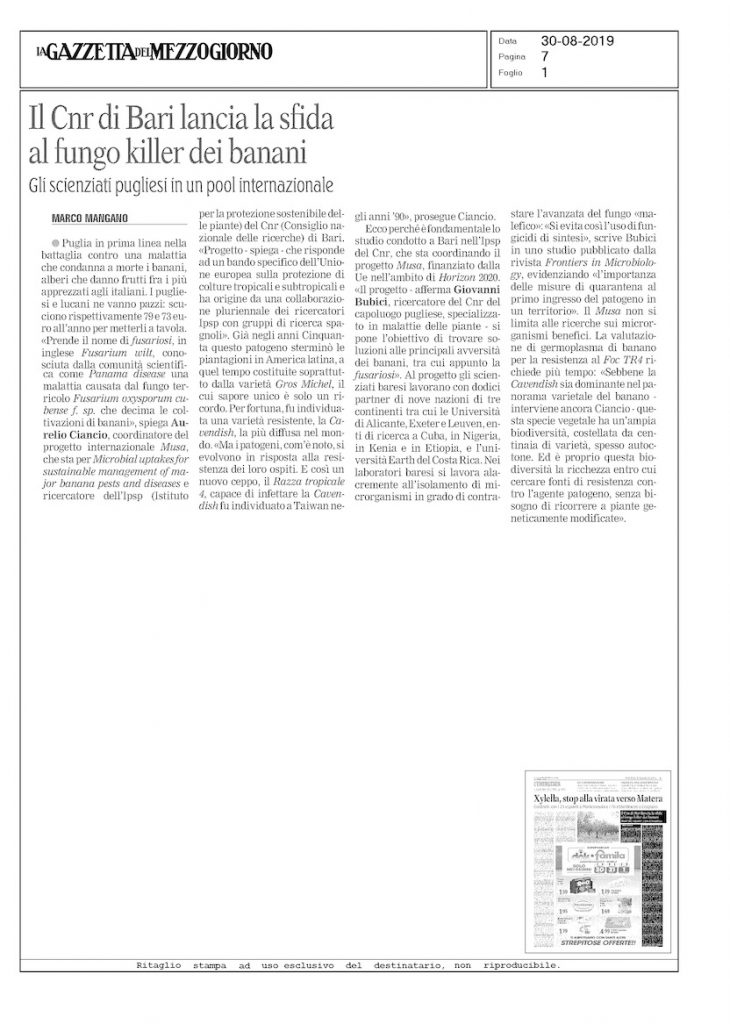
KAMPALA, 26THMARCH 2018 11:00 AM
Banana Breeders Challenge to Breed for Weevils and Nematodes.
The International Institute of Tropical Agriculture (IITA) in collaboration with National Agricultural Research Organization (NARO), Real IPM and International Center of Insect Physiology and Ecology (icipe) with support from the European Union will host over 30 Banana Research scientists from across the globe in Kampala, Uganda from 27th– 29thMarch 2018 for a workshop to discuss control of pests and diseases of bananas using biologically based methods to reduceon-farm banana loss. Bananas are a major staple food and a source of income for millions of people in East Africa, with 120 varieties of East African highland bananas (EAhB) being grown, and thus, efforts to increase its production are required.
The workshop is organized under the Microbial Uptakes for Sustainable management of major bananA pests and diseases (MUSA) project funded by the European Union Horizon 2020 with an objective whose principal aim is to achieve sustainable intensification of bananas. and ensete crops (in Ethiopia), through identification, development and implementation of Intergrated Pest Management (IPM) based on naturally occurring beneficial microorganisms. The project is led by Dr. Aurelio Ciancio, who is based in Italy.
The workshop that will be opened by the head of National Banana Research Program of NARO, Dr. Jerome Kubiriba will be attended by researchers from Uganda, Kenya, Ethiopia, Nigeria, Tanzania, Costa Rica, Italy, Spain, United Kingdom, Belgium, and Cuba. Presentations from different countries on experiences, lessons and approaches to tackle this problem will be followed by field visits to breeding laboratories and trial gardens of NARO, IITA and Real IPM at Sendusu and Kawanda.
Pesticides no longer represent a sustainable option for control of pests, and many have
been progressively withdrawn from use in the European Union or are highly restricted, due to harmful effects on the environment and toxic residues. In Sub-Saharan Africa, where phytosanitary policies and regulations are often less effective, such pesticides are still being (mis)used, posing a significant threat to vulnerable farmers and consumers of bananas. With the influence of changing climates in tropical and sub-tropical regions, the banana crops are becoming ever more exposed to pathogens and pests due to higher multiplication rates and prevalence induced by temperatures and rainfall patterns. Sustainable measures to resolve this challenge while adopting to climate change through breeding for resistance against these threats and combining this with biological control options will be discussed.
=END=


